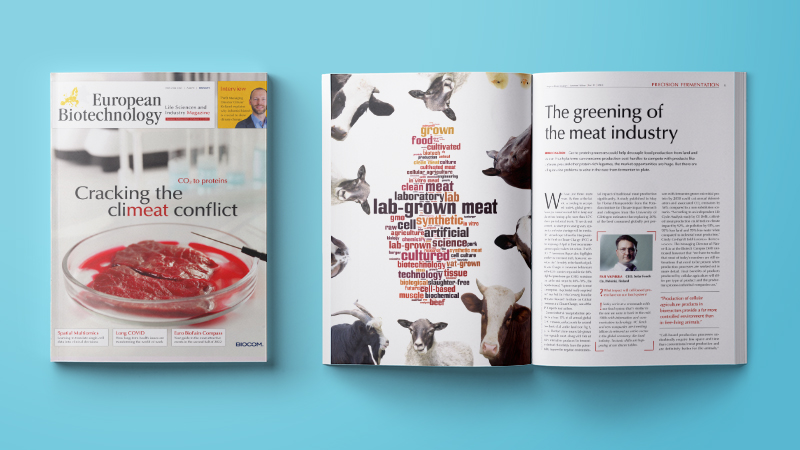European Biotechnology Magazine 2/2022
Berlin, 20 May 2022 – Industrial meat production is currently responsible for at least 15% of global annual greenhouse gas emissions and occupies about two-thirds of all arable land. Lab-grown, non-plant-based meat, fish, or dairy alternatives, produced in fermenters rather than on fields, therefore have the potential to drastically reduce the environmental impact of conventional meat production. New gas-to-protein methods even promise to completely decouple food production from the use of land and sea. How sustainable are these new protein production systems?
Also in this issue:
Abstinence and Justice
At the sold-out Swiss Biotech Day in Basel, experts from the biotech industry warned about the erosion of patent protection. A pandemic-related exception under the TRIPS waiver could quickly become a general standard. Currently, 100 of the 164 WTO member states are advocating for a relaxation of patent protection to address inequalities in the distribution of COVID-19 vaccines.
The Next Big Thing?
Single-cell approaches have grown outdated, and the next step is to expand our knowledge of the bigger picture with so-called spatial multi-microscopy. The field has already been celebrated for several innovations, but it is still in its infancy. Smaller companies are fighting for a share of the pie, while the major players in the industry are waiting in the wings.
Interview: Olivier Rolland, Managing Director of Toulouse White Biotech (TWB)
Special: European BioFairs Compass
Here’s the link to the European Biotechnology Magazine 2/2022.

